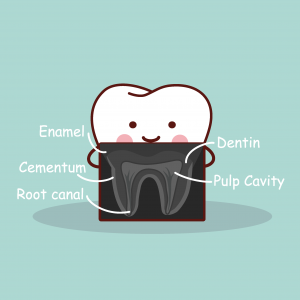Does your office take CenCal. Medical, Medicare or any HMO Plans?
Unfortunately, no. We are currently in network with Delta Dental (Premier), Assurant/Sunlife, and Cigna PPO Plans. However, our office will gladly bill to ANY PPO plan as a courtesy to you. If you are unsure whether your insurance is HMO or PPO, please contact your insurance company or check your insurance card.
 What is fluoride and why is it recommended?
What is fluoride and why is it recommended?
Fluoride is a natural mineral found throughout the earth’s crust and widely distributed in nature. Some foods and water supplies contain fluoride.
Fluoride is often added to drinking water to help reduce tooth decay. In the 1930’s, researchers found that people who grew up drinking naturally fluoridated water had up to two-thirds fewer cavities than people living in areas without fluoridated water. Fluoride inhibits the loss of minerals from tooth enamel and encourages remineralization of the teeth.
To read more about fluoride treatment, please visit the following link:
http://www.ada.org/en/member-center/oral-health-topics/fluoride-supplements
What is Nitrous Oxide (Laughing Gas, Happy Air, Magic Air etc.) ?
Nitrous oxide is a safe and effective sedative agent mixed with oxygen and inhaled through a small mask that fits over the nose. It does NOT put your child to sleep, it is intended to help your child relax and ease any anxiety they may have in the dental chair. Many children report feeling relaxed, “dreamy” and often feel a tingly sensation in their arms or legs. Nitrous Oxide also raises pain threshold and makes time pass quickly for your child so their time in the chair is quick and easy. At the end of treatment, your child will be breathing in oxygen for a short period of time to eliminate any lingering effects. Nitrous Oxide is one of the safest sedatives used in dentistry and is well tolerated by most patients.
 Why should X-Rays be taken if my child has never had cavities?
Why should X-Rays be taken if my child has never had cavities?
X-rays detect more than just cavities. They are able to show erupting teeth, bone disease, injury, and any orthodontic treatment that may be needed. Although your child may not have cavities at the time, taking regular x-rays ensure that we find and treat any decay early on which in return makes dental care more affordable and comfortable.
How safe are dental X-rays?
There is very little risk in dental X-rays. Pediatric dentists are especially careful to limit the amount of radiation to which children are exposed. Lead aprons and high-speed film are used to ensure safety and minimize the amount of radiation. In fact, dental x-rays represent a far smaller risk than undetected and untreated dental problems.
Are baby teeth really that important to my child?
Primary, or “baby,” teeth are important for many reasons. Not only do they help children speak clearly and chew naturally, they also aid in forming a path that permanent teeth can follow when they are ready to erupt.

At what age should my child start seeing a dentist regularly?
We recommend that children start seeing a dentist between 18-24 months for regular 6 month check-ups. This is a great way to familiarize them with the tools regularly used, and to build a relationship with their dentist. These appointments ares also very informative for the parents as we discuss dietary habits, oral hygiene, brushing techniques and overall health and wellness. We are more than happy to see any patient under the age of 18 months if there are any concerns with your child’s dental health.
